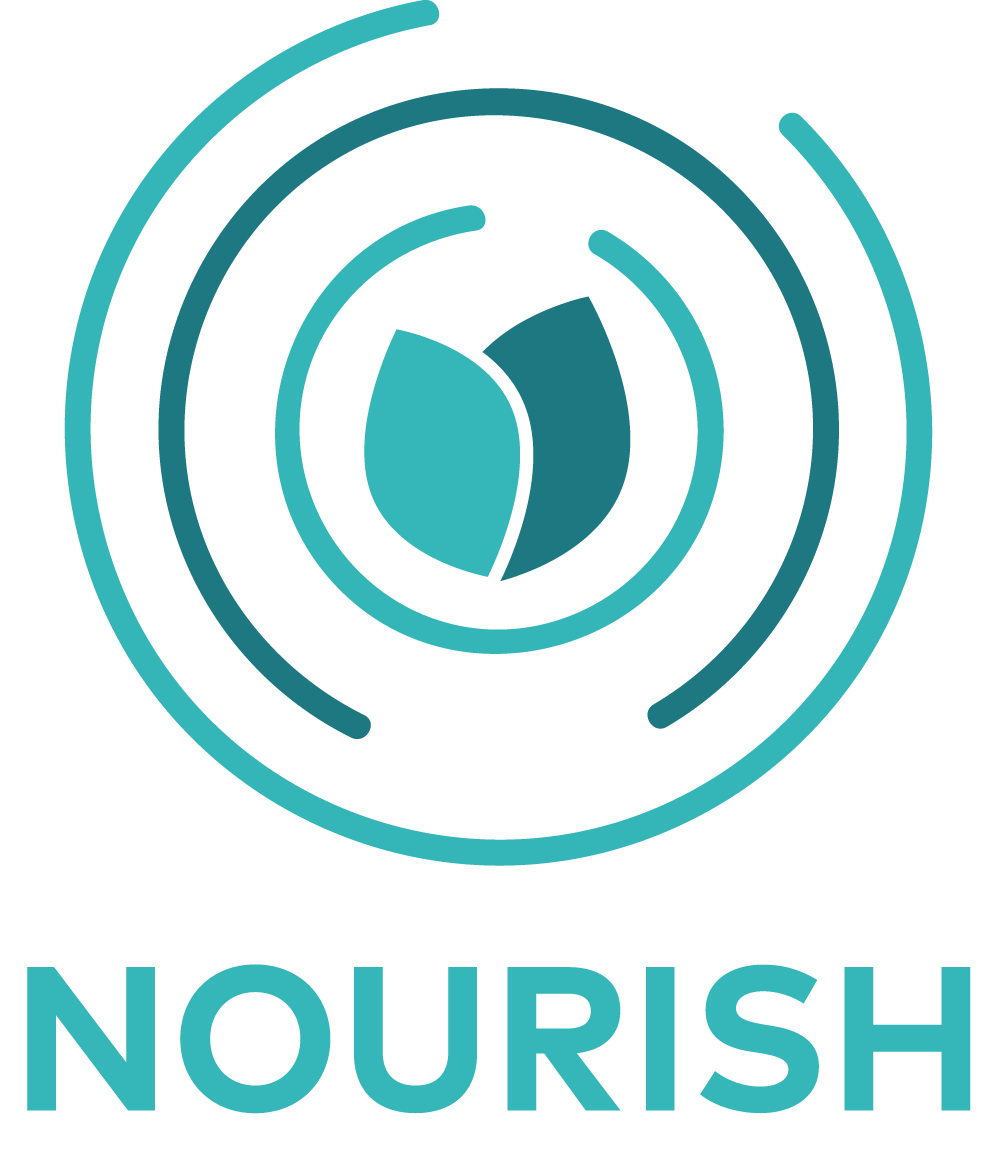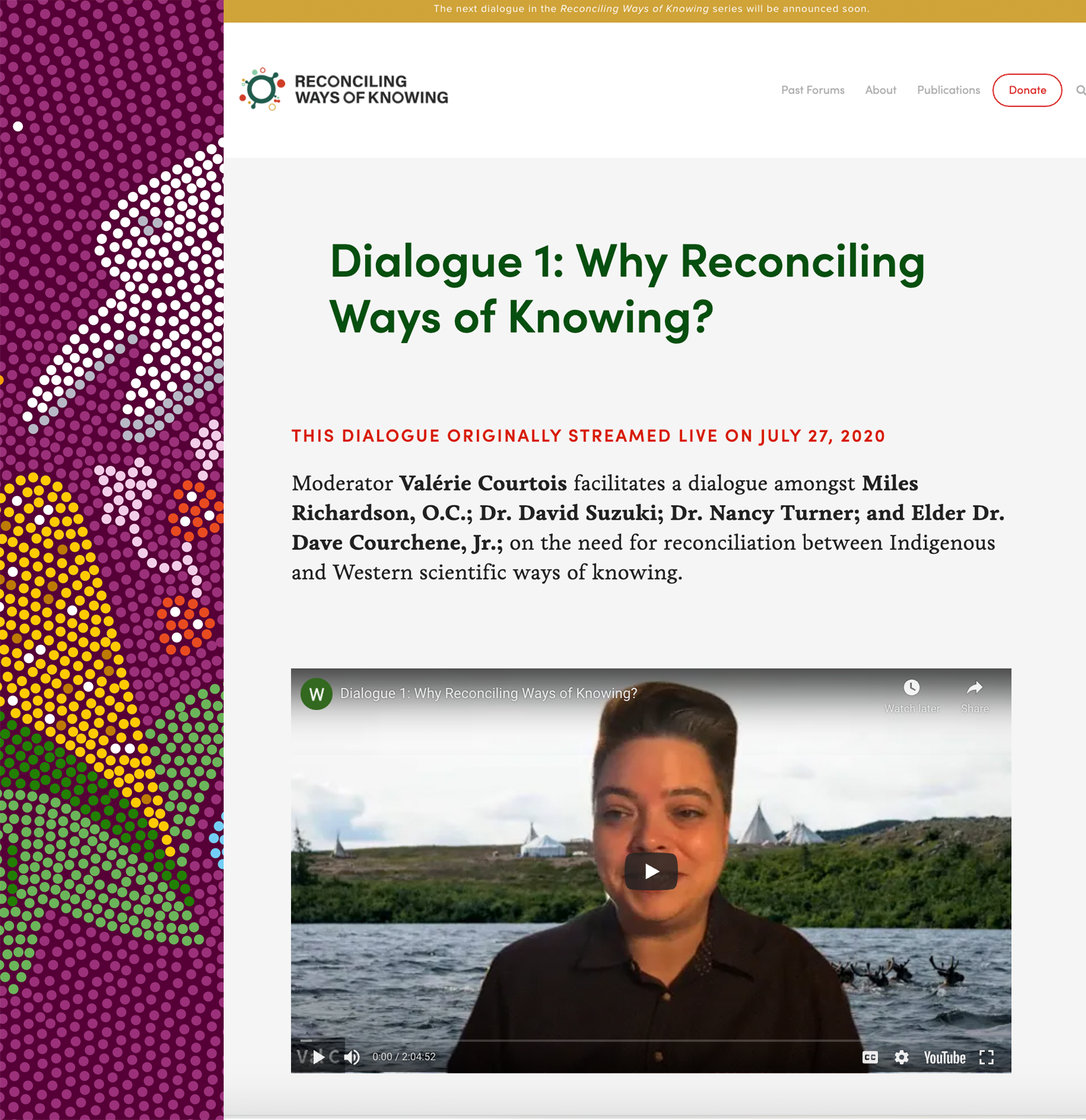On February 17, Nourish Indigenous Program Mangaer Mair Greenfield spoke with clinicians and students at the University of British Columbia's Faculty of Medicine.
Valerie Segrest at TEDxRainier
Source: Valerie Segrest at TEDxRainier
Year: 2014
“The Indian tribes around the Puget Sound have practiced sustainable balance with its foods for thousands of years, but now the prairie lands and mountain berry meadows are disappearing and salmons runs are dwindling. Valerie Segrest, a member of Muckleshoot tribe and native foods educator tells us to listen to the salmon and cedar tree, who teach us a life of love, generosity and abundance, and to remember when we take better care of our land, we are taking better care of ourselves.”
A Conversation on Indigenous Food Sovereignty (Part 2)
Source: Kitatipithitamak Mithwayawin and guests
Year: 2020
“This discussion includes the importance of dismantling structural racism in the food system, how Covid-19 speaks to the inequities of our broken food system, and how intertwined the social and environmental implications of food are for Indigenous peoples.”
Reconciling Ways of Knowing Webinar Series
Source: Reconciling Ways of Knowing
Year: 2020
“In our first dialogue in this series, Why Do We Need to Reconcile Ways of Knowing? leaders working at the confluence of Indigenous and scientific knowledge and decision making discussed the events, issues and relationships that made it clear that a national-scale dialogue to facilitate just reconciliation between the ways of knowing and ways of being of Indigenous Peoples and Canadians, and their respective governments, is needed.”
Food Security & Three Sisters Sustainability - Conversations in Cultural Fluency
Source: Six Nations Polytechnic
Year: 2016
As part of the Conversations in Cultural Fluency webinar series, Six Nations Polytechnic explores Hodinoshon:hi worldviews. This one focuses on agriculture, food security, and Three Sisters sustainability.
Native Foodways with the Cultural Conservancy
Source: KCET
Year: 2020
“The commodification of food has led to a bottom-line approach that has disconnected people from their food sources entirely. The Cultural Conservancy, an inter-tribal organization headquartered on Ohlone land in modern-day San Francisco, is revitalizing Indigenous knowledge by inviting us to re-engage with the land, honor heirloom seeds, grow clean food and medicines, and decolonize our foodways.”
Chuck and The First Peoples’ Kitchen
Source: Aboriginal Peoples Television Network
Year: n.d.
“Members of Indigenous communities across Canada dish out their knowledge with professional chef Chuck Hughes. Sharing integral parts of their Indigenous culture and culinary heritage through the sharing of family and ancestral recipes. From lobster fishing in Chaleur Bay, moose hunting in Newfoundland, to ptarmigan hunting in Nunavut, the 25-year veteran chef travels through forests, rivers and snow-covered landscapes as he prepares world class meals using the resources the land provides. Guided by his mentors, Chuck becomes a privileged witness of the respect Indigenous Peoples have towards nature.”
Moosemeat & Marmalade
Source: Aboriginal Peoples Television Network
Year: n.d.
“Moosemeat & Marmalade brings together Bush Cook, Art Napoleon, and classically trained British Chef, Dan Hayes to explore and compare Indigenous and European culture and cuisine. Through his Cree heritage, and rough around the edges persona, Art is a man among men when it comes to hunting and surviving in the Northern wilds. From across the pond, Dan draws on years of history and tradition to create modern food that looks as good as it tastes. Every week one of these chefs choose an ingredient and lead the journey. They couldn’t be more different or more set in their ways but these two chefs come together to create and explore culture, culinary traditions, worldviews and, of course, really good food.”
A Conversation on Indigenous Food Sovereignty (Part 1)
Source: Kitatipithitamak Mithwayawin and guests
Year: 2020
“This video is a shortened version of the full length webinar. It highlights some of the key points and moments. Some of the things discussed include the importance of dismantling structural racism in the food system, how Covid-19 speaks to the inequities of our broken food system, and how intertwined the social and environmental implications of food are for Indigenous peoples.”
Urban Access to Traditional Food: Understanding Wild Game
Source: Understanding Our Food Systems Project (Thunder Bay District Health Unit and the Indigenous Food Circle)
Year: 2020
“The Urban Access to Traditional Food: Understanding Wild Game documentary was developed to capture the relationships being built and work happening within the Thunder Bay District Health Unit and the Indigenous Food Circle and partner organizations around the topic of accessing wild game in an urban context. The short documentary provides viewers with the cultural importance of accessing traditional foods for Indigenous people and presents the barriers that organizations face, while focusing on a path forward for further collaboration and understanding.”
Indigenous Hunter Keeps Traditions Alive in Boreal Forest
Source: Pew
Year: 2016
““An intact boreal forest is essential for the survival of Dene communities,” says James Marlowe. Marlowe is a Dene hunter and guide from the Lutsel K’e Dene First Nation, a remote Indigenous community on the east arm of Great Slave Lake in Canada’s boreal forest. The lifestyle of the Dene is experiencing some changes, and so is the forest landscape, as demand for the area’s rich natural resources expands.”
Inuit and their traditional foods
Source: McGill Centre for Indigenous Peoples' Nutrition and Environment
Year: n.d.
“In recent decades Indigenous Peoples globally have experienced rapid and dramatic shifts in lifestyle that are unprecedented in history. Moving away from their own self-sustaining, local food systems into industrially derived food supplies, these changes have adverse effects on dietary quality and health.”
Yukon Hospitals First Nations Health Program: Cultural Programs
Source: Yukon Hospitals
Year: 2016
This video shows traditional food and medicine at Yukon Hospitals through First Nations Health Programs.
Mohawk College welcomes the Three Sisters
Source: Mohawk College
Year: 2020
“Mohawk College Students and staff welcomed the Three Sisters (corns, beans and squash) to Mohawk today with a planting at the college's Fennell Campus in May. The plants will grow alongside the Hoop Dance, Mohawk's Indigenous Gathering Space which is due to be completed this June.”
Type 2 Diabetes and Indigenous Peoples – Supporting a Culturally Safe and Self-Determined Journey
Source: Rebecca Sovdi and Jessica Guss
Year: 2020
This 60-minute webinar focuses on type 2 diabetes and Indigenous Peoples in BC. Thought leaders Rebecca Sovdi and Jessica Guss draw on evidence and lived experience to provide the context and understanding required to effectively support Indigenous peoples on a culturally safe and self-determined journey.
The Honorable Harvest - Robin Kimmerer
Source: Bioneers
Year: 2019
This video is part of a series called "Seeding the Field: 30 Years of Transformative Solutions," which celebrates some of the best moments of the Bioneers conference through the last 30 years. Robin Kimmerer, professor of Environmental Science and Forestry, of Potawatomi ancestry, explores the question: “If plants are our teachers, what are their lessons, and how might we become better students”?
Seeds of Our Ancestors, Seeds of Life
Source: Winona LaDuke at TEDxTC
Year: 2012
"Food has a culture. It has history. It has stories, it has relationships, that tie us to our food. Food is more than something you just buy at the store. Something that just doesn't have a stamp on it. In our community, we are told long time ago by our prophets, our Anishinabe people lived on the eastern seaboard.And we're related to those people out there, the Wampanoags and others. And we were instructed by our prophets that we should follow a shell which appeared in the sky. And in following that shell, we would arrive at the place where the food grows upon the water. And that food that grows upon the water is minoman, or wild rice."
Is the Crown at war with us?
Author: Alanis Obomsawin
Year: 2002
In this feature-length documentary by Alanis Obomsawin, it's the summer of 2000 and the country watches in disbelief as federal fisheries wage war on the Mi'kmaq fishermen of Burnt Church, New Brunswick. Why would officials of the Canadian government attack citizens for exercising rights that had been affirmed by the highest court in the land? Casting her cinematic and intellectual nets into history to provide context, Obomsawin delineates the complex roots of the conflict with passion and clarity, building a persuasive defence of the Mi'kmaq position.
Cultural Mindfulness
Source: George Couchie
Year: 2019
The first step toward understanding other people is learning about their past. George Couchie takes us through some of his Indigenous culture and history, educating us about the impacts of residential schools. Inspiring youth Angel Armstrong, Mckenzie Ottereyes Eagle, and Miigwan Buswa share their connection to the past and show us how they are stopping those negative cycles by embracing culture.
Why Hospital Food Matters for Reconciliation
Why does hospital food matter for reconciliation? Health care institutions exert a significant cultural influence in Canada. Like everything else, they are the product of Canada’s colonial history and too often perpetuate systemic discrimination embedded in their policies and practices. This was on display with the horrific death of Joyce Echaquan.
So how can health care institutions use their influence to create change? Food is a good place to start. This film explains how colonialism created an “Indigenous health gap” and how food can play an important role in decolonizing our institutions. It profiles three leading examples of health care institutions practicing anchor leadership by working with Indigenous communities to unlearn colonial ways of operating and by bringing traditional Indigenous recipes, ingredients and ways of knowing into their organizations.
TAKE ACTION to help your healthcare organization to unlock the power of Indigenous foodways by screening this film and getting involved.







